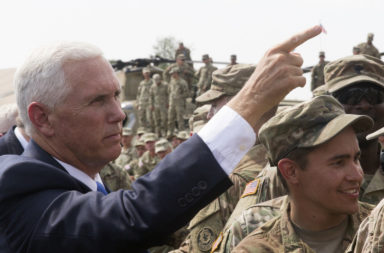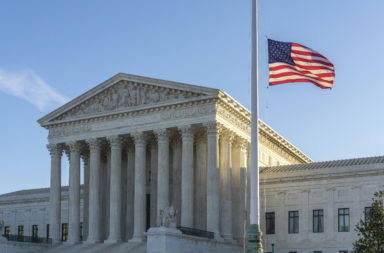The winner takes it all- Trump in 2016 the GOP?
It could be anytime, but the best guess says it’s likely to still be a while.
It’s a pretty rare thing that people actually care about primary elections towards the end of the race.
Especially by June 7, when Montana, New Jersey, New Mexico and South Dakota all go to the polls.
But with California ‘s 172 delegates set to be up for grabs on the day, people are sure to be watching.
Especially if we don’t have a nominee by then. And it’s increasingly looking like we won’t.
So with 53 districts to trace across the country’s third largest state, the race in California will surely be closely watched.
So just who is looking likely to win?
Well, as with most states across the country, recent polling had Trump in first place on 24.9%. However, Cruz was positioned not that far behind at 19.6% of the vote, and this was at a time where Rubio was still in the race, and held 17.6% of the vote, with undecideds still at 22.5%. So with Rubio voters unlikely to go to Trump, and events between now and June likely to heavily influence voters in California, we still see upwards of 40% of that state up for grabs.
Moreover, with undecideds still at such a high level, there’s a great chance that this number could grow as a whole new swathe of voters enter the race, determined to influence the final outcome of the nomination process.
Generally, what happens as the primary season rolls on is that the party tends to coalesce behind a particular nominee. We saw this with John McCain in 2008, and we saw it again with Mitt Romney in 2012. As momentum starts to build, the party and its backers tend to throw everything they’ve got behind the likely winner, and that ultimately gives them the necessary momentum to take on whoever their opponent might be when the general election arrives. Indeed, that seems to be what’s happening on the Democratic side.
Yet its clear why this isn’t happening for Trump. He may be well in the lead with his current 621 delegates, leading his nearest rival Cruz by more than 200. But with the party elite and other conservatives frightened about the prospect of a Trump nomination, he simply isn’t receiving the level of support that others before him in his position had.
And perhaps this is why.
His current net favourability rating is -42%, and it grows to -63% among Hispanic voters in California. This means that it’s pretty conceivable that a whole new base of voters will mobilise to stop Trump, if they think that their able to at the primary or general election level. And that’s starting to worry the party. They know that no candidate with these kinds of favourability ratings could ever hope to win the Presidency. But more importantly, such unpopularity could even cost the party a range of house and senate seats that would threaten their long term standing in the houses of Parliament.
So that’s why there’s talk of a brokered convention, if no single candidate can arrive at the finish in Cleveland with the necessary 1,237 delegates to win.
While no one believes that Kasich’s single home state victory suggests that he is likely to be successful in gaining the nomination, he does seem to have played an important role in slowing Trump’s momentum. Not only did his victory stop Trump from sweeping the states that voted last week, they also seem to have put into perspective Cruz’s victories.
No one seems to be talking about how Cruz has managed to win across eight separate states, and perhaps that’s because party establishment figures find his nomination almost as concerning as that of Trump’s. Yet it’s important to bear in mind that if he comes in second at a convention where no one has the necessary delegate count to win decisively, there’s still a good chance that the party could rally behind him. He may be unpopular among his colleagues, but the opposition against him in the electorate is nothing compared to Trump’s.
At the same time, Trump has warned that there will be riots if he is denied the nomination, despite having the most delegates. With the recent violence at his rallies being front of mind, this is a truly concerning thought.
To warn of such activity is reminiscent of the fierce divide within the Democratic party of 1968. The violence on the streets of Chicago was the result of a rupture so significant within the party, that Democrats were unable to stop the election of Republican Nominee, Richard Nixon, despite severe distaste for him in the broader populace.
Indeed, perhaps this is why conservative strategists are genuinely considering a push to form a new party. At exit polls for major states voting on Tuesday, 2 out of 5 republican voters from all states but Florida stated that they would consider voting for a third party if such was formed. And indeed, just like in 1968 where Democratic voters felt that they had not had a say in the primary process and stayed at home, perhaps we can expect the same of Republicans this time around.
Trump voters have already proven that the purpose of their vote is to protest against the current party establishment, so to see their vote purposefully distorted by the very people that they are rebelling against would likely lead to some unfortunate outcomes for the party.
So what will this all mean when the general election rolls around?
Well it’s certainly likely to mean that a whole new base of voters could mobilise against Trump, should he receive the nomination. But if we fail to see his nomination, we’re just as likely to see a new angry base of Republican voters.
Levels of unfavourability such as those Trump possesses are fairly unprecedented. Although it’s certainly imaginable that such opposition would push new voters to the polls. The kind of voters who otherwise might have remained apathetic. More than this, we know that unlike Republican voters who seem to be enjoying the push from an outsider candidate, Democratic voters tend to prefer someone with experience, as seen by their preference for Clinton over Sanders.
So we can certainly expect to see a new mobilization of voters on the left. And if Trump voters feel disenfranchised because they don’t see their nominee, we can only expect this effect to be compounded, as Republican voters choose to stay at home, rather than vote for someone they haven’t selected.
What this means is that in coming months if we do see the Trump Clinton faceoff that people seem to be predicting, we can also expect that this is going to come with some serious consequences for voter turnout. And those consequences are likely to be anything but good for Trump.




